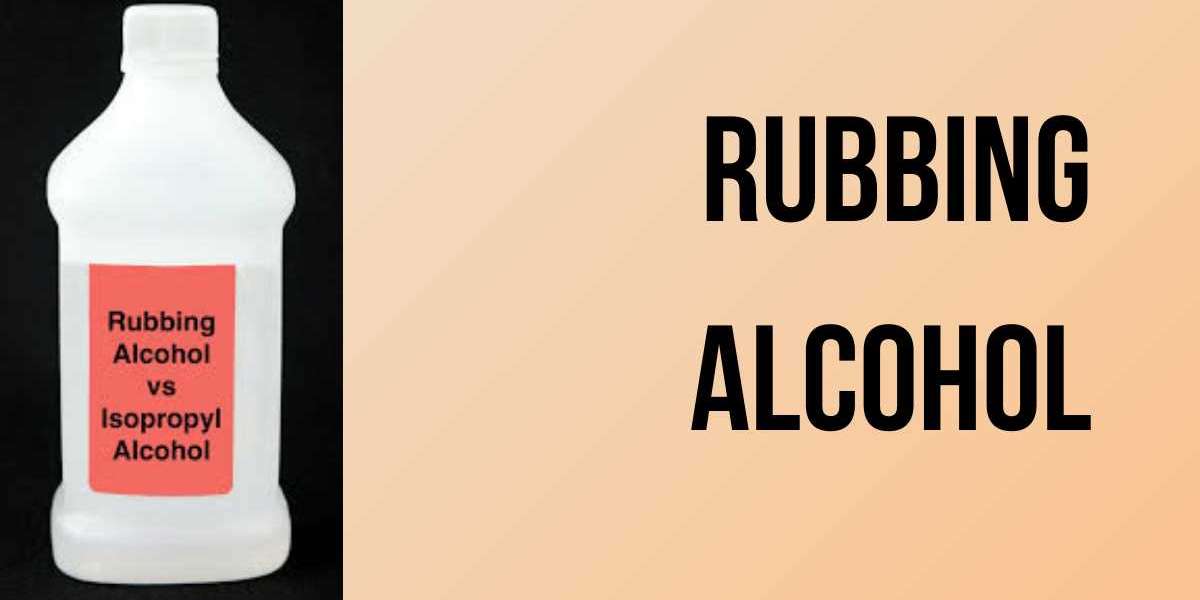Rubbing alcohol is a common household item known for its versatility and effectiveness. It typically contains isopropyl alcohol, which is a powerful antiseptic. From disinfecting surfaces to personal care, rubbing alcohol serves various purposes. In this guide, we’ll explore its uses, benefits, and safety precautions.
What is Rubbing Alcohol?
Rubbing alcohol primarily consists of isopropyl alcohol and water. It usually comes in concentrations of 70% and 91%. The 70% solution is often preferred for disinfecting as it remains on surfaces longer, enhancing its effectiveness.
- 70% Isopropyl Alcohol: Commonly used for disinfecting skin and surfaces.
- 91% Isopropyl Alcohol: Preferred for cleaning electronics and other items where water exposure is a concern.
The Benefits of Rubbing Alcohol
Antiseptic Properties
- Rubbing alcohol is an excellent antiseptic. It kills germs and bacteria on contact. According to the Centers for Disease Control and Prevention (CDC), using an alcohol-based sanitizer can reduce the number of germs on your hands by 99%.
Disinfectant
- It effectively disinfects surfaces, making it a valuable cleaning agent in homes and workplaces. Regular use can help prevent the spread of infections, especially during cold and flu season.
First Aid
- It is a popular choice for cleaning minor cuts and scrapes. Applying rubbing alcohol helps prevent infection by killing harmful bacteria.
Pain Relief
- Rubbing alcohol can provide temporary relief from muscle aches. When applied to sore areas, it cools the skin and reduces pain sensations.
Deodorizer
- Its strong scent can mask unpleasant odors. You can use rubbing alcohol to clean fabrics and surfaces that hold onto smells.
Solvent
- It serves as a solvent for various household tasks. For instance, it can dissolve adhesive residues, making it easier to remove labels and stickers.
How to Use Rubbing Alcohol
Rubbing alcohol is simple to use, but you must follow proper guidelines to ensure safety and effectiveness. Here are some common applications:
Disinfecting Surfaces:
- Spray rubbing alcohol on countertops, tables, and other surfaces. Wipe with a clean cloth. For best results, let it sit for a few minutes before wiping.
Cleaning Electronics:
- Dampen a cloth with rubbing alcohol and gently wipe screens and electronic devices. Avoid soaking the devices to prevent damage.
First Aid:
- Clean minor cuts and scrapes with rubbing alcohol. Apply it using a cotton ball or gauze pad. Allow it to dry before covering the wound.
Deodorizing Fabrics:
- Mix equal parts of rubbing alcohol and water in a spray bottle. Lightly mist fabrics to eliminate odors. Test on a small area first to ensure it doesn’t damage the fabric.
Safety Precautions
While rubbing alcohol is beneficial, it is crucial to use it safely:
Keep Away from Flames:
- Rubbing alcohol is flammable. Store it away from heat sources and open flames.
Use in a Well-Ventilated Area:
- The fumes can be strong. Ensure proper ventilation when using rubbing alcohol indoors.
Avoid Skin Contact:
- Although it is often used on skin, excessive exposure can cause dryness and irritation. Always wash your hands after using it.
Do Not Ingest:
- Rubbing alcohol is toxic if ingested. Keep it out of reach of children and pets.
Comparing Rubbing Alcohol to Other Disinfectants
When considering disinfectants, it’s essential to understand how rubbing alcohol compares to other common options, such as bleach and hydrogen peroxide.
| Disinfectant | Effectiveness | Usage | Pros | Cons |
|---|---|---|---|---|
| Rubbing Alcohol | Effective against bacteria and viruses | Skin and surfaces | Fast-acting, easy to use | Flammable, can irritate skin |
| Bleach | Effective against bacteria, viruses, and fungi | Surfaces, laundry | Strong disinfectant | Harsh fumes, can discolor |
| Hydrogen Peroxide | Effective against bacteria and viruses | Surfaces, wounds | Less harsh than bleach | Less effective against some viruses |
Rubbing Alcohol in Industry
Many industries rely on rubbing alcohol for various applications. Healthcare facilities use it for disinfecting medical equipment. In the beauty industry, it's used for sanitizing tools and equipment. According to a report by Grand View Research, the global isopropyl alcohol market is expected to reach $6.61 billion by 2027, highlighting its widespread importance.
Frequently Asked Questions about Rubbing Alcohol
1. Can I use rubbing alcohol on my skin?
Yes, but use it sparingly and avoid open wounds. It can cause dryness and irritation with excessive use.
2. How should I store rubbing alcohol?
Keep it in a cool, dry place, away from direct sunlight and heat sources.
3. Is rubbing alcohol safe for cleaning electronics?
Yes, but ensure you use it sparingly and do not soak the devices. Use a damp cloth instead.
Conclusion
Rubbing alcohol is an essential household item with numerous applications. From disinfecting surfaces to providing first aid, its benefits are vast. However, it is vital to use it safely and responsibly. By understanding its uses and taking necessary precautions, you can effectively incorporate rubbing alcohol into your cleaning and personal care routines.








